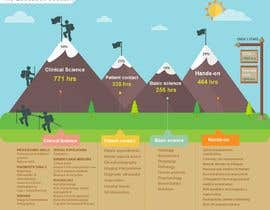Nutrition And Its Value In Back Pain Control: Foods To Support And Foods To Avoid
Nutrition And Its Value In Back Pain Control: Foods To Support And Foods To Avoid
Blog Article
Created By-Bond Lockhart
When it involves handling your back pain, the food options you make can substantially affect exactly how you really feel on a daily basis. Visualize being able to alleviate your pain just by changing what you consume. By understanding how to deal with lower back pain of nutrition in back pain management and recognizing which foods to integrate or stay away from, you can take proactive steps towards a healthier and much more comfy way of life. The link in between nourishment and back health and wellness is a lot more profound than you may realize-- let's discover how particular foods can either relieve or worsen your pain in the back.
Relevance of Nutrition in Back Pain
Nourishment plays an important role in handling back pain. Your diet regimen can significantly impact swelling degrees and total pain levels in your back. Eating a well balanced diet rich in nutrients like vitamins D and K, calcium, magnesium, and omega-3 fatty acids can help in reducing inflammation and reinforce bones, which are vital for back wellness.
In addition, maintaining a healthy and balanced weight with proper nourishment can minimize anxiety on your spine, decreasing the threat of back pain.
Moreover, specific nutrients like anti-oxidants discovered in fruits and vegetables can aid deal with oxidative stress and anxiety and advertise recovery in the body, consisting of the back muscles and back.
On the other hand, taking in excessive amounts of refined foods, sweet drinks, and unhealthy fats can add to swelling and weight gain, intensifying pain in the back.
Foods to Consume for Back Health
To support a healthy back, including nutrient-rich foods into your everyday dishes is crucial. Including foods high in antioxidants like berries, spinach, and kale can help in reducing inflammation in your back, relieving discomfort and discomfort. Omega-3 fats found in fatty fish such as salmon and mackerel have anti-inflammatory residential properties that can benefit your back wellness.
Additionally, consuming nuts and seeds like almonds, walnuts, and chia seeds gives important nutrients like magnesium and vitamin E, which support muscle mass feature and reduce oxidative tension. Integrating lean proteins such as chicken, turkey, and tofu can assist in muscle repair and upkeep, advertising a strong back.
Do not fail to remember to include milk or strengthened plant-based alternatives for calcium to support bone health and wellness. Last but not least, moisturize with plenty of water to keep your spine discs hydrated and functioning efficiently. By consisting of these nutrient-dense foods in your diet plan, you can nurture your back and support general back health and wellness.
Foods to Avoid for Pain In The Back
Choose staying clear of processed foods high in added sugars and trans fats when looking for relief from neck and back pain. low back of foods can contribute to inflammation in the body, which might exacerbate back pain. Say no to sweet snacks like candy, breads, and sugary beverages, in addition to convenience food things like hamburgers, french fries, and fried poultry that are typically filled with trans fats.
Additionally, stay away from foods containing high degrees of polished carbs, such as white bread, pasta, and breads, as they can spike blood sugar levels and possibly get worse inflammation in the body.
It's likewise important to limit your intake of foods high in saturated fats, like red meat and full-fat dairy items, as they can contribute to swelling. Processed foods like delicatessens meats, chips, and packaged treats are frequently high in hydrogenated fats and ought to be consumed in moderation.
Conclusion
Finally, paying attention to your diet plan and making clever food selections can have a considerable influence on managing back pain. By including nutrient-rich foods like berries, fatty fish, nuts, and lean healthy proteins, and staying clear of refined and sugary things, you can help in reducing swelling and support on the whole back health. Remember, what you consume plays an essential duty in just how you really feel, so make certain to prioritize your nourishment for a healthier back.
